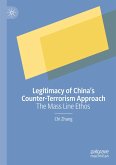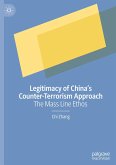This book explores the public diplomacy discourse of Chinese state media on ethnic minorities in Xinjiang. China s minority policies towards Muslims in the Xinjiang Uyghur Autonomous Region have become an issue of contention in global politics that could further damage China s global reputation. Many states and prominent individuals position themselves by reacting either in support of or in opposition to the treatment of the Muslim minority in Xinjiang. Examining 54 English language Videos about Xinjiang and Islam produced by and broadcast on the China Global Television Network s (CGTN) YouTube Channel, this book analyzes how the Chinese state makes truth-claims about Xinjiang and Islam to discursively legitimise its official positions. The book argues that CGTN narrates the monolithic state perspective rather than seeking to establish a common ground of shared norms and values to acquire legitimacy. One key finding arising from CGTN s narratives is the notion of harmony as aprerequisite for economic development. By examining China's discursive legitimising narratives around Xinjiang, the thesis contributes to the research literature on China s public diplomacy and provides a novel framework for understanding the role of (de)legitimation strategies in public diplomacy practice.
Bitte wählen Sie Ihr Anliegen aus.
Rechnungen
Retourenschein anfordern
Bestellstatus
Storno








